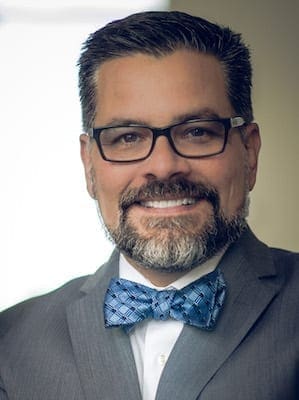The Prophet Amos condemned Israel’s profiteering while the poor went hungry: “They sell the righteous for silver, and the needy for a pair of sandals – they who trample the head of the poor into the dust of the earth” (Amos 2:6-7).
Concerned about the poor’s treatment in this world, God sent Jesus to “bring Good News to the poor” (Luke 4:18).
Last week, the stock market soared to a record high, hovering over 25,000. Some experts believe the market’s uptick was due to the massive tax overhaul signed into law at the end of 2017.
Needless to say, this is good news for those fortunate enough to invest in the stock market and make enough money to actually profit from last year’s legislation.
However, with the words of Amos and Jesus echoing in our ears, what does all this good fortune for wealthy investors mean for those without?
Earlier in the week, the EthicsDaily.com staff offered analysis from a United Nations special rapporteur on extreme poverty and human rights.
The evidence was haunting: U.S. healthcare expenses are on the rise among the poor, child poverty in the U.S. tops the six richest developed countries, the U.S. lags behind those same six countries when it comes to the economic mobility of the poor, and the U.S. continues incarcerating almost five times more people than any other place in the world.
The Dow is up, but the down-and-out are struggling more now than ever before.
Therefore, how should Christians think about and respond to the widening divide between the rich and poor?
We can no longer deny this reality. We can no longer hold out a fictitious hope that somehow the wealthy will invest in the poor, permitting their economic rise. (History has demonstrated the exact opposite.)
Christians can engage in a three-tiered approach to empowering the least among us.
1. Human needs.
Christians and churches should strive to have a thriving benevolence program or network (or both) in order to care for immediate human needs.
The poor often have needs that rise quickly and must be addressed expeditiously.
Food, clothing and shelter are necessities. Therefore, as a people of faith, we must have or participate in systems that provide for these needs.
Many communities do a wonderful job assisting the poor, but if your community does not, let this ministry begin with you and your church.
2. Human empowerment.
Christians can also develop and offer a more long-term plan of empowerment. A vast majority of the economically disadvantaged wants to have consistent employment and sustainable income.
There is a misconception that the poor enjoy being poor and that all poor people are unequivocally lazy. Both of these misconceptions are far from the truth.
The poor and working poor need reasonable opportunities to give them skills, knowledge and options in the workforce.
Therefore, Christians can volunteer at local job-training centers, or congregations can develop employment-skills training at their churches.
3. System advocacy.
The most general and broad way Christians can help the poor is through advocacy.
Advocating for both private and public sectors, known as the mixed economy, will help provide much-needed resources for families to begin the slow climb out of poverty.
Engaging your missions committee at church and your elected officials can help build systems that equip the poor.
Instead of systems that award the wealthiest Americans, we need systems in place that empower the least of us to rise upward economically.
Goodwill Christians should champion empowerment of the poor. While the U.S. stock market continues to soar upward, we need to be advocating for a society that does not forget the poor and does not let the division between the wealthy and poor widen.
If there were one segment of society closer to the heart of Jesus than any other, it was the poor and marginalized.
Therefore, let us also make certain the poor and marginalized are at the heart of our theological convictions and applications.
The down-and-out no longer have to be so, as long as they have a voice and advocates working on their behalf. Let us be those people.
Mitch Randall is executive director of BCE and executive editor of EthicsDaily.com. You can follow him on Twitter @rmitchrandall.

